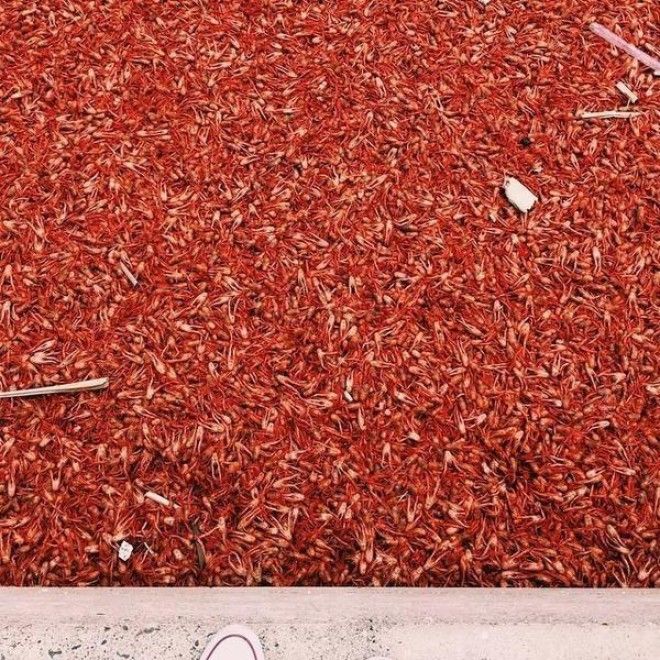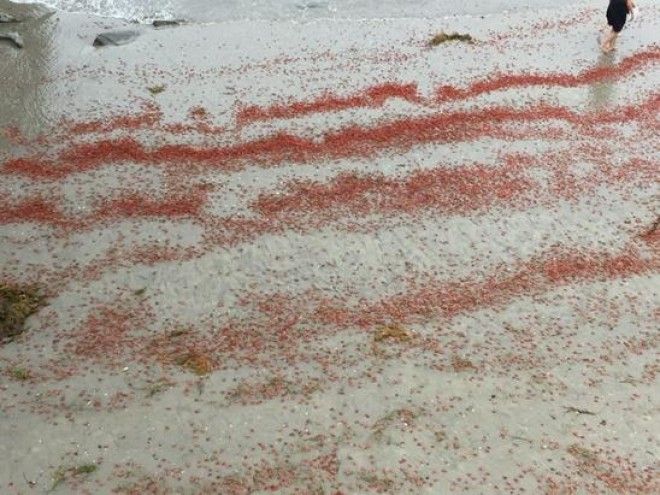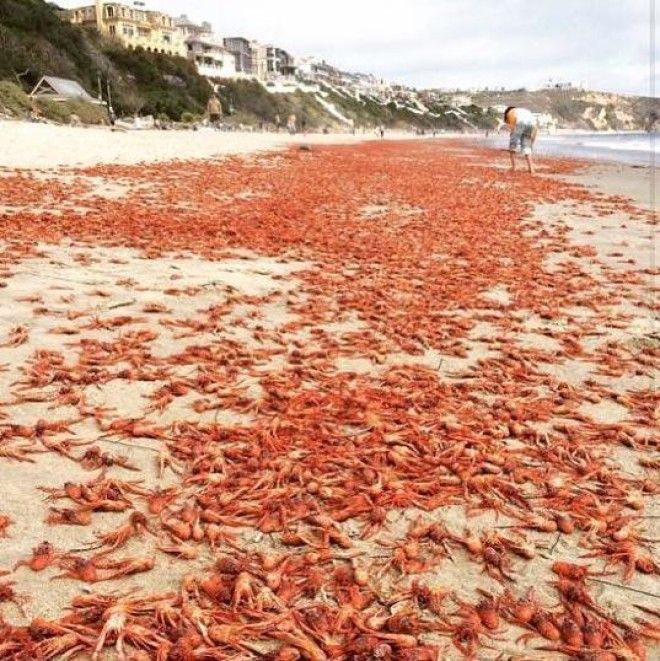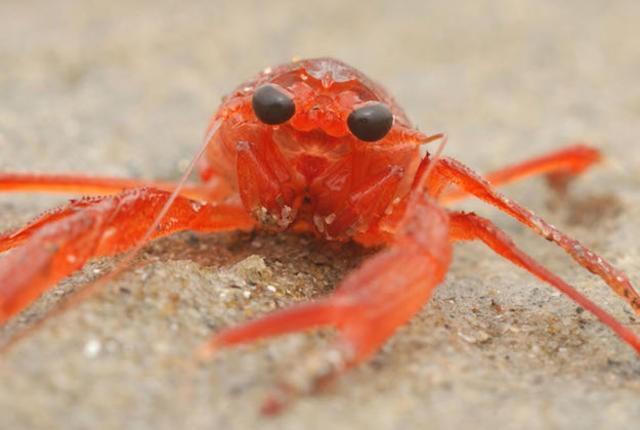now, thousands of small red tuna crabs, or pelagic red crabs (Pleuroncodes planipes), have been washing up along the southern California shoreline. No one really knows why.

Because the species can exist, at every stage of its life, either on the sandy ocean floor or somewhere in the more fluid water column all the
way up the surface, they are prone to being carried along by winds, tides, and currents. Linsey Sala, a museum scientist at the Scripps Institution of Oceanography, UC San Diego, says that the change in currents due to unusually warm waters from a brewing El Nino could be responsible for washing the crowds of crustaceans ashore.

The striking color of the crabs—some of which arrive at the beach still alive—have started to attract scores of humans as well. But this is no seafood free-for-all; experts caution that the crabs should not be eaten, as they don't yet know what's causing their deaths.


